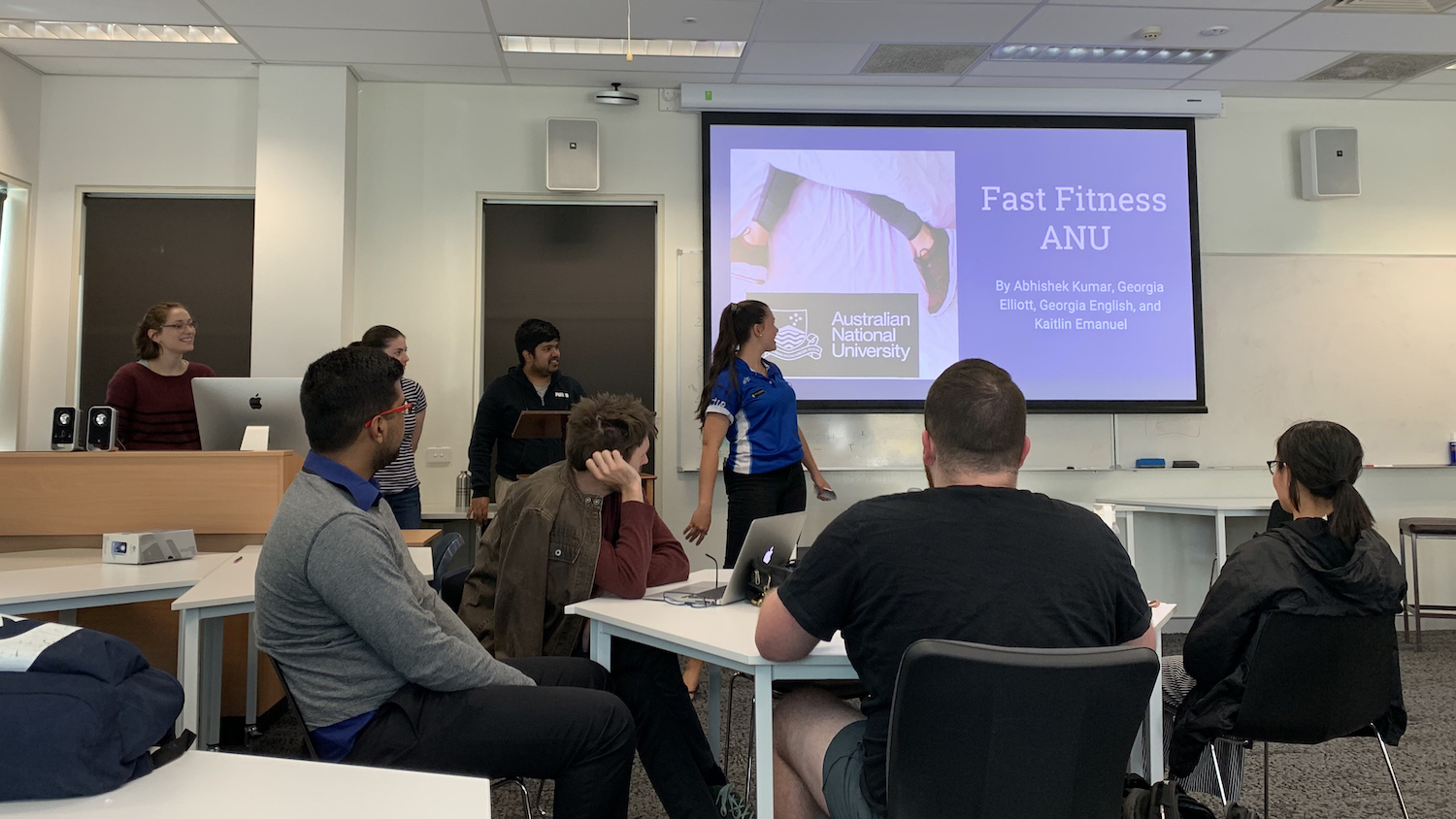Promoting health using science communication skills
Years after she organised her first health fair in Abu Dhabi, Dr Merryn McKinnon got the chance to bring the event to ANU.
This semester, Dr McKinnon started a new undergraduate course, Health Promotion Principles and Practice (SCOM3033), at CPAS. A major part of the course is to ask students to develop a specific health promotion initiative and deliver it at a health fair.
“It was always something I wanted to go back to,” she said.
Testing ground
Health promotion refers to the process of enabling people to increase control over and improve their health. Similar to science communication, it’s about changing people’s behaviours, and in doing so, facts alone don’t work.
“While it’s easy to read about the principles in a book, the only way you learn is to do it,” Dr McKinnon said.
In her previous role, a health fair served to be an excellent venue for students to gain hands-on experience in the field. The question is, would it work here for the undergrads?
For its trial semester, the new course attracted students from different disciplines ranging from law to genetics. Some came for a better understanding of the health promotion part of the course, whereas others were more interested in learning the skills of science communication involved.
The reputation of the lecturer plays a part, too. “Honestly, I also took this course for Merryn!” revealed Chloe Wong, who is finishing her degrees in psychology and anthropology.
“I loved her teaching style, it was so much fun, and was more engaging than other courses I’ve taken,” commented Chloe.
Dr McKinnon is happy to see such engagement, especially when the course is in its testing phase. “I just had 25 very forgiving ‘guinea pigs’,” she said with a laughter.
Applying theory to practice
Every week in SCOM3033, one-third of the class time was devoted to developing their health promotion campaign. The students were asked to try tackling real-world issues such as implementing health canteens in schools using theories they learnt and apply the way of thinking to their own projects.

Students in the class of SCOM3033. Credit: Calo Huang
“The discussions of scenarios and tactics were the most engaging parts,” remarked genetics and science student Georgia Elliott.
“We had a few case studies that really got us thinking and stressing,” recalled Chloe, “but I’d like to say it helped us all bond.”
On week nine, the students were ready for showcasing.
“I’m fascinated by the ideas they have and where they start from compared to where they end up and what they end up doing,” Dr McKinnon commented.
The students covered a variety of aspects of health promotion. Chloe’s team shared not only knowledge about healthy relationships but also cupcakes and condoms. Georgia and her groupmates encouraged students to do more exercise by providing information about free exercise programs. Others set up stalls to communicate topics from social sports to healthy diets.

The stall of Fast Fitness ANU. The students also created a website and a Facebook page to make their resources accessible online. Credit: Georgia Elliott
“The health fair was great!” Georgia said, “It would have been good to have more foot traffic coming through, but it provides students with access to some really good health advice!”
Another health promotion program developed by the students was “Our Loneliness”, which focuses on sharing, understanding and dealing with experiences with loneliness. Credit: Samantha Vilkins
As the proof-of-concept of the health fair appeared to work well, Dr McKinnon expects the event to be bigger next year.
“If students want the opportunity to try and apply the skills they have learnt in all of the science communication courses within a practical, ‘real-world’ setting, come along and have a go,” she said.
SCOM3033 will run again in Semester 2, 2020.
This article was written by CPAS student Calo Huang.
